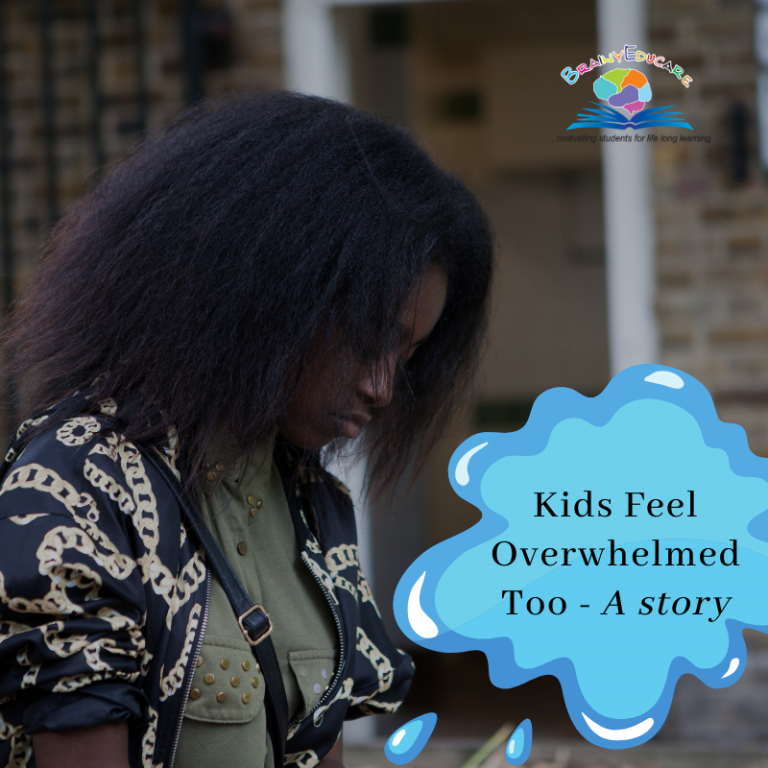Also in the series:
- Emotional First-Aid; Basic steps to ensuring sound emotional health.
- Why do we Neglect our Mental Health?
- How Does Coronavirus Affect Mental Health?
- Curbing the Effects of Covid-19 on Mental Health

The emotional effects of the coronavirus pandemic are more pronounced on children. Although we may see no significant changes now, there are underlying emotional problems that may have resulted from the pandemic and the many problems that came with it.
These problems only become visible after a period of time. And at that point, they are usually very hard to fix. The following are concepts that parents need to teach their children in order to help them strengthen their emotional wellbeing and mental health.
1. Emotional Competence
Children are not fully formed as soon as they are born. They have to be taught certain skills that would help them thrive in the world. One of the characteristics that must be instilled into a child is emotional competence.
Emotional competence refers to a person’s ability to constructively respond to situations that demand emotional responses, in ways that don’t violate any of the parties involved (either self or others).
Individuals that are emotionally competent have learnt to take control of their emotional life and the ways this may impede their personal growth and relationships.
This competence is built on three skills
- Children’s ability to identify their emotions
- Children’s ability to comprehensively express their emotions
- Children’s ability to effectively regulate their emotions.
When these 3 skills are effectively taught to children, they can become more emotionally strong.
2. Self-awareness.
“Until you make the unconscious conscious, it will direct your life and you will call it fate.” – Carl Jung
Most part of our life is directed by subconscious thoughts that run in our head. It is only the few that can go beyond the surface and reflect on who they are, become successful.
You must teach your kids to have more knowledge about themselves, their predispositions, and certain obstruction that can impede their growth in life.
With questions like “who made you angry today?” “Why are you feeling this way?” “What can you do differently?” kids will gradually become masters of their own selves.
3. Self-esteem
The amount of achievement a person is able to attain is directly related to the belief the person has in his or her abilities. Many children grow up unsuccessful because their parents have failed to instil that genuine “YES I CAN!” belief that would propel success.
Confidence and satisfaction in oneself and one’s ability is a prerequisite for a fulfilling life. To help kids become emotionally strong, you need to build confidence in them by using affirmations, expressing your belief in their ability, etc
These affirmations (which include statements like “I am intelligent, I am beautifully created, I have what it takes,” etc.) have been proven to improve a child’s self esteem and self-image.
4. Emotion Management
We can’t get rid of emotions, they are natural parts of our being. But, we can control how these emotions (especially the negative ones) affect our lives.
Emotion management is a key skill that children must be taught. Whenever your child has a negative emotion, help them identify the actions they need to take in order to put things under control.
It is not just enough for them to identify the emotions, they must also be able to deal with them effectively.
Explain and demonstrate how to react in different situations, how to calm down and act appropriately, and how to manage other people’s emotions.
These 4 skills are the most important to ensure that kids attain a state of stable emotional wellness. We have combined all the concepts of emotional development into a series of kits that will help young people become masters of their emotions. You can get these emotional toolkits or simply teach the skills mentioned above to your kids.
All that matters is to help our kids achieve a sound and problem-free state of mind, even when things are tough.
Previous:








0 thoughts on “How To Help Your Child Achieve Emotional Strength”
I have recently started a website, the info you provide on this web site has helped me tremendously. Thanks for all of your time & work.
Your comment is awaiting moderation.